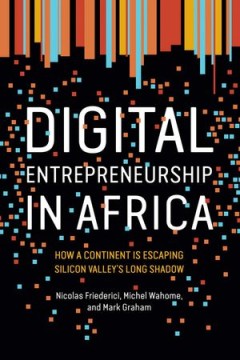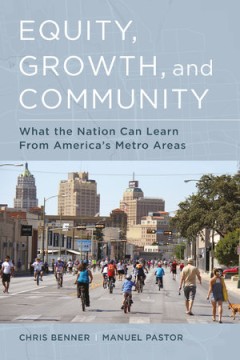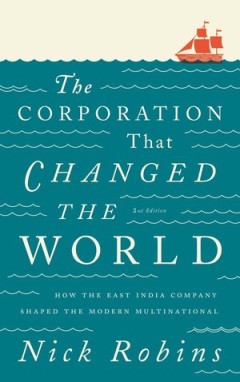Filter by

Development Against Democracy : Manipulating Political Change in the Third World
This updated edition of the influential Development Against Democracy is a critical guide to postwar studies of modernisation and development. In the mid-twentieth century, models of development studies were products of postwar American policy. They focused on newly independent states in the Global South, aiming to assure their pro-Western orientation by promoting economic growth, political ref…
- Edition
- -
- ISBN/ISSN
- 9780745337296
- Collation
- -
- Series Title
- -
- Call Number
- 650

A Precarious Game : The Illusion of Dream Jobs in the Video Game Industry
A Precarious Game is an ethnographic examination of video game production. The developers that Ergin Bulut researched for almost three years in a medium-sized studio in the U.S. loved making video games that millions play. Only some, however, can enjoy this dream job, which can be precarious and alienating for many others. That is, the passion of a predominantly white-male labor force relies on…
- Edition
- -
- ISBN/ISSN
- 9781501746550
- Collation
- -
- Series Title
- -
- Call Number
- 650

Digital Entrepreneurship in Africa :
The hope and hype about African digital entrepreneurship, contrasted with the reality on the ground in local ecosystems. In recent years, Africa has seen a digital entrepreneurship boom, with hundreds of millions of dollars poured into tech cities, entrepreneurship trainings, coworking spaces, innovation prizes, and investment funds. Politicians and technologists have offered Silicon Valley–i…
- Edition
- -
- ISBN/ISSN
- 9780262362849
- Collation
- -
- Series Title
- -
- Call Number
- 650

Equity, Growth, and Community : What the Nation Can Learn from America's Metr…
In the last several years, much has been written about growing economic challenges, increasing income inequality, and political polarization in the United States. Addressing these new realities in America’s metropolitan regions, this book argues that a few lessons are emerging: first, inequity is bad for economic growth; second, bringing together the concerns of equity and growth requires con…
- Edition
- -
- ISBN/ISSN
- -
- Collation
- -
- Series Title
- -
- Call Number
- 650

Theories of Social Capital : Researchers Behaving Badly
Tracing the evolution of social capital since his highly acclaimed contribution of 2001 (Social Capital Versus Social Theory), Ben Fine consolidates his position as the world's leading critic of the concept. Fine forcibly demonstrates how social capital has expanded across the social sciences only by degrading the different disciplines and topics that it touches: a McDonaldisation of social the…
- Edition
- -
- ISBN/ISSN
- 9781849644426
- Collation
- -
- Series Title
- -
- Call Number
- 650

The Future of Money : From Financial Crisis to Public Resource
As the recent financial crisis has revealed, the state is central to the stability of the money system, while the chaotic privately-owned banks reap the benefits without shouldering the risks. This book argues that money is a public resource that has been hijacked by capitalism. Mary Mellor explores the history of money and modern banking, showing how finance capital has captured bank-created m…
- Edition
- -
- ISBN/ISSN
- 9781849644501
- Collation
- -
- Series Title
- -
- Call Number
- 650

The Birth of Capitalism : A 21st Century Perspective
In the light of the deepening crisis of capitalism and continued non-Western capitalist accumulation, Henry Heller re-examines the debates surrounding the transition from feudalism to capitalism in Europe and elsewhere. Focusing on arguments about the origin, nature and sustainability of capitalism, Heller offers a new reading of the historical evidence and a critical interrogation of the trans…
- Edition
- -
- ISBN/ISSN
- 9781849646130
- Collation
- -
- Series Title
- -
- Call Number
- 650

How the East India Company Shaped the Modern Multinational
The English East India Company was the mother of the modern multinational. Its trading empire encircled the globe, importing Asian luxuries such as spices, textiles and teas. But the Company's takeover of much of India was achieved by force and fraud; in China, the battering ram was opium. The East India Company's corruption and violence shocked its contemporaries and still reverberates today. …
- Edition
- -
- ISBN/ISSN
- 9780745331966
- Collation
- -
- Series Title
- -
- Call Number
- 650

Rereading Marx in the Age of Digital Capitalism
The 'end of history' has not taken place. Ideological and economic crisis and the status quo of neoliberal capitalism since 2008 demand a renewed engagement with Marx. But if we are to effectively resist capitalism we must truly understand Marx: Marxism today must theorise how communication technologies, media representation and digitalisation have come to define contemporary capitalism. There …
- Edition
- -
- ISBN/ISSN
- 9780745340005
- Collation
- -
- Series Title
- -
- Call Number
- 650

The Experience Society : How Consumer Capitalism Reinvented Itself
Airbnb, gaming, escape rooms, major sporting events: contemporary capitalism no longer demands we merely consume things, but that we buy experiences. This book is concerned with the social, cultural and personal implications of this shift. The technologically-driven world we live in is no closer to securing the utopian ideal of a leisure society. Instead, the pursuit of leisure is often an atte…
- Edition
- -
- ISBN/ISSN
- 9780745338705
- Collation
- -
- Series Title
- -
- Call Number
- 650
 Computer Science, Information & General Works
Computer Science, Information & General Works  Philosophy & Psychology
Philosophy & Psychology  Religion
Religion  Social Sciences
Social Sciences  Language
Language  Pure Science
Pure Science  Applied Sciences
Applied Sciences  Art & Recreation
Art & Recreation  Literature
Literature  History & Geography
History & Geography